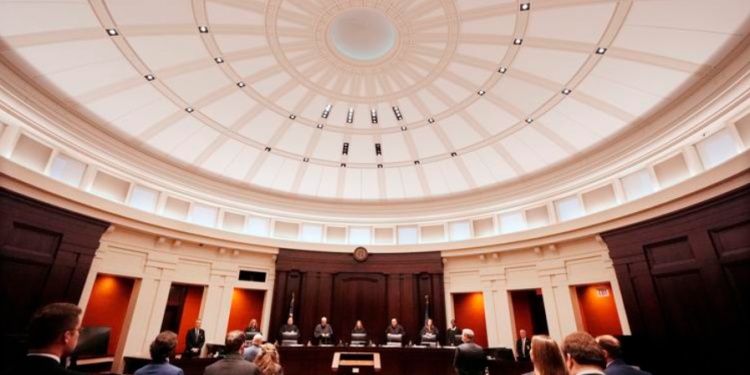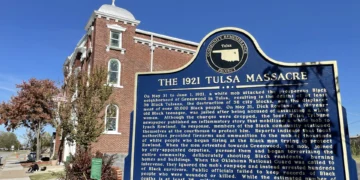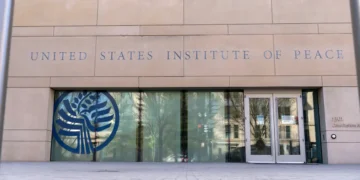Dec 22, 2024 Story by: Editor
LANSING, Mich. (AP) — During Kyra Harris Bolden’s first political campaign, she faced criticism from detractors who dismissed her ambitions, telling her she wasn’t Michelle Obama or Kamala Harris and questioning her resolve to run. But that challenge only fueled her determination.
She later named her first child Emerson, specifically so the nickname “Em Bolden” could symbolize the courage that drives her life and career.
Now 36, Bolden has made history. In 2018, she won her race for the Michigan House of Representatives. Four years later, she was appointed as the youngest-ever justice and the first Black woman to serve on Michigan’s Supreme Court. In November, voters endorsed Governor Gretchen Whitmer’s decision by electing Bolden to her seat.
“It’s been a long journey for me,” Bolden told The Associated Press. Her path, she said, began generations ago when her great-grandfather’s lynching forced her family to flee the South.
Michigan’s Supreme Court has a long tradition of female representation. When Kimberly Ann Thomas, a Democratic-backed candidate, joins the bench in January, five of the court’s seven justices will be women, marking the sixth time the court has had a female majority, according to the Michigan Supreme Court Historical Society.
However, diversity remains limited nationwide. The Brennan Center for Justice reports that only 41 Black women have ever served on state supreme courts. Bolden’s election ensures that Michigan’s Black community, which makes up 14% of the population, continues to have representation.
In contrast, Ohio’s Supreme Court has lost its only Black woman justice, Melody Stewart, after her reelection bid failed, leaving the court entirely white.
Inspired by Racial Trauma
For Bolden, the fight for justice is deeply personal. She only learned the full story of her great-grandfather Jesse Lee Bond’s lynching when her maternal great-grandmother recounted family history shortly before Bolden graduated college.
According to the Equal Justice Initiative, Bond was lynched in 1939 in Arlington, Tennessee, after asking a store owner for a receipt. He was fatally shot, castrated, and his body was thrown into the Loosahatchie River. Despite overwhelming evidence, two suspects were acquitted of the murder.
“I wanted families to see justice in a way my family had not seen justice,” Bolden said.
Motivated by this tragic legacy, she earned her law degree from Detroit Mercy, became a defense attorney, and served on the Michigan House Judiciary Committee, where she advocated for criminal justice reform and domestic violence prevention.
Her mother, Cheryl Harris, reflected on her daughter’s accomplishments with emotion. “She believes in justice and fairness for everybody,” Harris said. “To see her in this position—it’s making me tear up right now.”
Breaking Barriers in Kentucky
Bolden’s journey is mirrored by Pamela Goodwine, who recently became Kentucky’s first Black woman elected to its Supreme Court. Kentucky now boasts its first female chief justice and a female-majority court.
Goodwine, inspired by Thurgood Marshall, the first Black U.S. Supreme Court justice, began her career as a court stenographer. Over the years, she ascended through Kentucky’s judicial system, breaking barriers at every level.
“It is absolutely essential that younger generations see someone who looks like them in every position, particularly positions of power,” Goodwine said.
Balancing Leadership and Motherhood
Bolden also broke new ground as the first Michigan Supreme Court candidate to campaign while pregnant, according to the Vote Mama Foundation, which tracks mothers in politics.
“There are so many people that don’t know that this is achievable,” Bolden said, reflecting on her journey.
Former U.S. Representative Brenda Lawrence, who worked tirelessly to see a Black woman serve as a Michigan Supreme Court justice, expressed her pride in Bolden.
“She’s a hard worker and exactly what the state needs,” Lawrence said.
Bolden’s election not only honors her family’s legacy but also serves as a beacon of hope for others striving to break barriers and achieve justice. Source: AP News
















